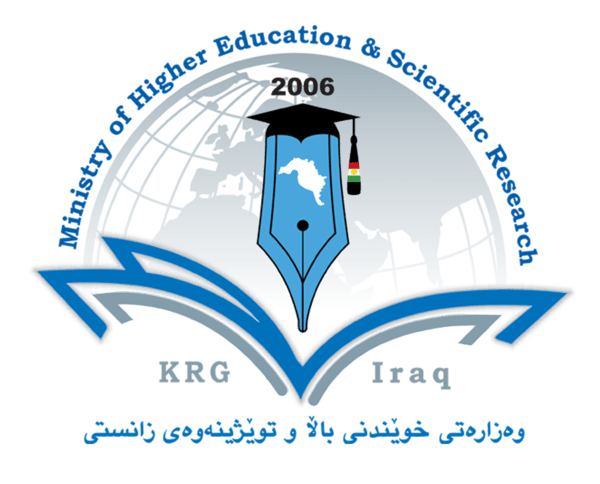Hypoxia, Taste, and Smell Loss in Severe Hospitalized COVID-19 Patients in Correlation with HRCT Chest Involvement
DOI:
https://doi.org/10.56056/amj.2025.354Keywords:
COVID 19, Oxygen saturation, Smell and Taste lossAbstract
Background & Objective: An infectious disease called coronavirus disease (COVID-19) is brought on by the SARS-CoV-2 virus. Most adult COVID-19 infections resulted in gustatory or olfactory impairment. The purpose of this research is to ascertain the frequency of taste and smell impairments in hospitalized COVID-19 patients.
Methods: This prospective cross-sectional study was carried out in the Dr. Hemn Teaching Hospital in Sulaimani, Iraq, from May 2021 to January 2022. This study included the selection and enrollment of 100 hospitalized COVID-19 patients (50 males and 50 females). We assessed if they have preserved ability to taste and smell as well as tested for O2 saturation level.
Results: A total of 100 patients who were enrolled in the study male 50%, and female 50 patients. The mean age was 54.5 ± 16.5 years. Ninety of the patients had significant COVID-19, according to their High-Resolution CT scan. Thirty patients experienced taste loss and forty-three patients claimed loss of smell. Although 23 patients have both taste and smell loss, they also have hypoxia. Severe hypoxia was established by about 25.7% of those with taste perception.Patients with smell and taste loss were more frequently found to have positive RT-PCR results, 41(95.3%) and 29(96.7%), respectively (p-value <0.001). High resolution CT-scan scan examination of the patients showed that 90 (90%) patients had the severe form of COVID-19.
Conclusion: The frequencies of taste and/or smell impairment were lower in severely hospitalized individuals. Moreover, the chemosensory deficits are less common in patients who experience acute hypoxia.
Downloads
References
Oda Y, Shiraishi S, Shimada M, Kurai O. Clinical profiles and outcome of patients with COVID-19 in a specialized hospital in Japan. J anesth. 2021 Jun;35(3):405-11.
Kerr C, Hughes G, McKenna L, Bergin C. Prevalence of smell and taste dysfunction in a cohort of CoVID19 outpatients managed through remote consultation from a large urban teaching hospital in Dublin, Ireland. Infect Prev Pract. 2020 Sep 1;2(3):100076.
AlShakhs A, Almomen A, AlYaeesh I, AlOmairin A, AlMutairi AA, Alammar Z, et al. The association of smell and taste dysfunction with COVID19, and their functional impacts. Indian J Otolaryngology Head Neck Surg. 2021 Jan 23:1-6.
Hajare PS, Harugop AS, Goswami L, Padmavathy O, Aggarwal U, Reddy YL. Prevalence of Olfactory and Gustatory Dysfunction in Coronavirus Disease (COVID-19): A Cross-Sectional Study in Our Tertiary Care Hospital. Indian J Otolaryngology Head Neck Surg. 2021 Jul 6:1-4.
Kacem I, Gharbi A, Harizi C, Souissi E, Safer M, Nasri A, et al. Characteristics, onset, and evolution of neurological symptoms in patients with COVID-19. Neurol Sci. 2021 Jan;42(1):39-46.
Husain Q, Kokinakos K, Kuo YH, Zaidi F, Houston S, Shargorodsky J. Characteristics of COVID-19 smell and taste dysfunction in hospitalized patients. Am. J. Otolaryngol. 2021 November-December; 42(6): 103068.
Polat B, Yilmaz NH, Altin G, Atakcan Z, Mert A. Olfactory and gustatory dysfunctions in COVID-19 patients: from a different perspective. J Craniofac surg. 2021 Sep;32(6):2119.
Sahoo PR, Sahu M, Surapaneni PS, Maiti A, Vankamamidi R, Panda N, et al. Evolution of olfactory and gustatory dysfunctions in COVID-19 patients in India. Eur. Arch. Oto-Rhino-L. 2021 Aug;278(8):2875-81.
Singer-Cornelius T, Cornelius J, Oberle M, Metternich FU, Brockmeier SJ. Objective gustatory and olfactory dysfunction in COVID-19 patients: a prospective cross-sectional study. Eur. Arch. Oto-Rhino-L. 2021 Sep;278(9):3325-32.
Printza A, Katotomichelakis M, Valsamidis K, Metallidis S, Panagopoulos P, Panopoulou M, et al. Smell and taste loss recovery time in COVID-19 patients and disease severity. J. Clin. Med. 2021 Jan;10(5):966.
Meyer, K.C. Diagnosis and management of interstitial lung disease. Transl. Respir. Med. 2014, 2, 4.
Samaranayake LP, Fakhruddin KS, Panduwawala C. Sudden onset, acute loss of taste and smell in coronavirus disease 2019 (COVID-19): a systematic review. Acta Odontol. Scand. 2020 Aug 17;78(6):467-73.
Vaira LA, Salzano G, Deiana G, De Riu G. Anosmia and ageusia: common findings in COVID?19 patients. The Laryngoscope. 2020 Jul;130(7):1787. doi: 10.1002/lary.28692/
Spadera L, Viola P, Pisani D, Scarpa A, Malanga D, Sorrentino G, et al. Sudden olfactory loss as an early marker of COVID-19: a nationwide Italian survey. Eur. Arch. Oto-Rhino-L. 2021. 2021 Jan;278(1):247-55.
Petrocelli M, Cutrupi S, Salzano G, Maglitto F, Salzano FA, Lechien JR, et al. Six-month smell and taste recovery rates in coronavirus disease 2019 patients: a prospective psychophysical study. J Laryngol Otol. 2021 May;135(5):436-41.
Lechien JR, Journe F, Hans S, Chiesa-Estomba CM, Mustin V, Beckers E, et al. Severity of anosmia as an early symptom of COVID-19 infection may predict lasting loss of smell. Front. Med. 2020:716.
Moein ST, Hashemian SM, Mansourafshar B, Khorram Tousi A, Tabarsi P, Doty RL. Smell dysfunction: a biomarker for COVID?19. Int Forum Allergy Rhinol 2020. Aug (Vol. 10, No. 8, pp. 944-950).
Paderno A, Schreiber A, Grammatica A, Raffetti E, Tomasoni M, Gualtieri T, Taboni S, etal. Smell and taste alterations in Covid 19: a cross sectional analysis of different cohorts. Int Forum Allergy Rhinology 2020 Aug;10(8): 955-962.
Giacomelli A, Pezzati L, Conti F, Bernacchia D, Siano M, Oreni L, Rusconi S, et al. Self-reported olfactory and taste disorders in patients with severe acute respiratory coronavirus 2 infection: a cross-sectional study. Clin. Infect. Dis. 2020 Jul 28;71(15):889-90.
Pérez-López FR, Tajada M, Savirón-Cornudella R, Sánchez-Prieto M, Chedraui P, Terán E. Coronavirus disease 2019 and gender-related mortality in European countries: A meta-analysis. Maturitas. 2020 Nov 1; 141:59-62.
Vaira LA, Hopkins C, Petrocelli M, Lechien JR, Chiesa-Estomba CM, Salzano G, et al. Smell and taste recovery in coronavirus disease 2019 patients: a 60-day objective and prospective study. J Laryngo Otol. 2020 Aug;134(8):703-9.
Giacomelli A, Pezzati L, Conti F, Bernacchia D, Siano M, Oreni L, et al. Self-reported http://www. jimmunol. org/Downloaded from olfactory and taste disorders in SARS-CoV-2 patients: a cross-sectional study. Clin. Infect. Dis. 2020 Jul 28;71(15):889-890.
Doty RL, Kamath V. The influences of age on olfaction: a review. Front. Psychol. 2014 Feb 7; 5:20.
Mueller AL, McNamara MS, Sinclair DA. Why does COVID-19 disproportionately affect older people Aging (Albany NY). 2020 May 31;12(10): 9959-9981.
Bhutani S, Coppin G, Geraldine Veldhuizen M, Parma V, Valery Joseph P. COVID-19 Related Chemosensory Changes in Individuals with Self-Reported Obesity. Version 2. medRxiv. Preprint. 2021 Mar 3. doi: 10.1101/2021.02.28.21252536/
Goyal P, Choi JJ, Pinheiro LC, Schenck EJ, Chen R, Jabri A, et al. Clinical characteristics of Covid-19 in New York city. N Engl J Med. 2020 Jun 11;382(24):2372-4.
Graham CS, Graham BG, Bartlett JA, Heald AE, Schiffman SS. Taste and smell losses in HIV infected patients. Physiol. Behav. 1995 Aug 1;58(2):287-93.
5von Bartheld CS, Hagen MM, Butowt R. Prevalence of chemosensory dysfunction in COVID-19 patients: a systematic review and meta-analysis reveals significant ethnic differences. ACS Chem. Neurosci. 2020 Sep 1;11(19):2944-61.
Romero-Sánchez CM, Díaz-Maroto I, Fernández-Díaz E, Sánchez-Larsen Á, Layos-Romero A, García-García J, et al. Neurologic manifestations in hospitalized patients with COVID-19: the ALBACOVID registry. Neurology. 2020 Aug 25;95(8): e1060-70.
Amer MA, Elsherif HS, Abdel-Hamid AS, Elzayat S. Early recovery patterns of olfactory disorders in COVID-19 patients; a clinical cohort study. Am. J. Otolaryngol. 2020 Nov 1;41(6):102725.
Downloads
Published
Issue
Section
License
Copyright (c) 2025 Amanj Abubakr Jalal Khaznadar

This work is licensed under a Creative Commons Attribution-NonCommercial-ShareAlike 4.0 International License.
The copyright on any article published in AMJ (The Scientific Journal of Kurdistan Higher Council of Medical Specialties )is retained by the author(s) in agreement with the Creative Commons Attribution Non-Commercial ShareAlike License (CC BY-NC-SA 4.0)














